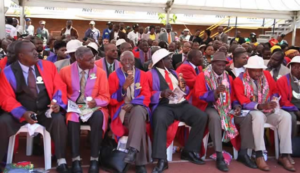THE URBAN CRISIS IN ZIMBABWE: POLITICAL GAMES OVER PEOPLE’S NEEDS
In the lead-up to Zimbabwe’s crucial August elections, a familiar political theater unfolds. The ZANU PF-led government, adept at shifting blame, points fingers at the opposition for the deteriorating state of urban Zimbabwe. This strategic vilification, particularly targeting the MDC Alliance and CCC, is a smokescreen to obscure the grim realities faced by residents in towns and cities across the nation.
The situation in smaller towns like Redcliff epitomizes this urban decay. The residents endure a chronic lack of essential services such as reliable water supply, compounded by the dismal state of roads and neglected city infrastructure, including street lighting. This neglect raises serious questions about the intentions and efficiency of local authorities.
Adding to the residents’ frustration are the murky land sales, which seem to benefit only the elite. The irony is stark: while basic amenities remain scarce, senior officials flaunt their affluence with high-end vehicles and smartphones, fueling suspicions of corruption.
Take, for instance, the controversial tender for a new major road in town. Despite receiving substantial advance payments, the project languishes, with no significant progress in sight. Meanwhile, excuses for the inadequate water supply, particularly in Redcliff’s less affluent areas, continue unabated.
It is cynical, then, that the ZANU PF party leverages these failures for political gain. President Emmerson Dambudzo Mnangagwa’s administration, quick to criticize the opposition, conveniently ignores its own role in driving the nation to this desperate state.
The urban crisis, especially the water shortages, is a direct result of the ZANU PF government’s failure to invest in crucial infrastructure. The lack of strategic planning is evident in their inability to construct new water bodies or modernize the colonial-era infrastructure, leading to significant challenges for the expanding urban population.
This pattern of neglect extends to the power sector, where reliance on outdated colonial-period equipment has resulted in frequent power outages, exacerbating the economic turmoil.
Claims by ZANU PF of handing over well-functioning cities to the opposition are misleading. The reality is a country surviving on the remnants of colonial development, with the effects of years of neglect now starkly evident.
Ironically, the government’s recent initiatives, like drilling boreholes in urban areas as seen in Cowdary Park, Bulawayo, and Chitungwiza, underline their inability to offer sustainable solutions. These temporary measures, while providing short-term relief, signal a failure to maintain urban living standards and prevent the degradation of cityscapes into rural-like conditions.
This reliance on boreholes, even by those overseeing the nation’s finances, is a stark reminder of a systemic issue. It underscores that regardless of who manages local governance, the challenge of ensuring a reliable potable water supply remains unresolved.
Zimbabwe’s urban crisis, therefore, is not just about opposition-led governance; it’s a more profound issue of national governance, where political priorities often overshadow the basic needs of the people. It’s a call for a decisive shift in political focus – from playing blame games to genuinely addressing the critical needs of urban dwellers.



